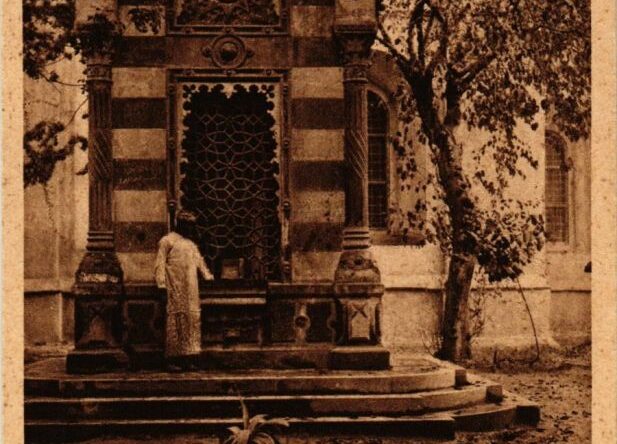Mulla `Ali al-Qari (d. 1014) on Tasawwuf
One of the great Hanafi masters of hadith and Imams of fiqh, Qur’anic commentary, language, history and tasawwuf, he authored several great commentaries such as al-Mirqat on Mishkat al-masabih in several volumes, a two-volume commentary on Qadi `Iyad’s al-Shifa’, and a two-volume commentary on Ghazali’s abridgment of the Ihya entitled `Ayn al-`ilm wa zayn al-hilm (The spring of knowledge and the adornment of understanding). His book of prophetic invocations, al-Hizb al-a`zam (The supreme daily dhikr) forms the basis of Imam al-Jazuli’s celebrated manual of dhikr, Dala’il al-khayrat, which along with the Qur’an is recited daily by many pious Muslims around the world.
He writes in the foreword to his commentary on Ghazali:I wrote this commentary on the abridgment of Ihya’ `ulum al-din by the Proof of Islam and the Confirmation of Creatures hoping to receive some of the outpouring of blessings from the words of the most pure knowers of Allah, and to benefit from the gifts that exude from the pages of the Shaykhs and the Saints, so that I may be mentioned in their number and be raised in their throng, even if I fell short in their following and their service, for I rely on my love for them and content myself with my longing for them.1 On the obligation to seek purification of the heart he writes:
The greatest of the great (al-akabir) have striven to pray only two rak`ats without conversing with their ego about dunya in the midst of their prayer, and they were unable to do this. Therefore there is not any such ambition for us of ever achieving this. Would that one saves only half of his prayer, or only a third, from the whisperings and the passing thoughts turning over in the mind. He is like him who mixes good and bad, like a glass full of vinegar into which water is poured: inevitably vinegar is spilled in proportion to the water poured and the two amounts never coexist. We ask for Allah’s help!2
The last chapter of Qari’s commentary on Ghazali, perhaps the most valuable of the entire work, is devoted to Ghazali’s and Qari’s explanations of the verse “If you love Allah, follow me, and Allah will love you!” (3:31) and is reminiscent of al-Harawi’s Kitab sad maydan on the same topic. In it Qari cites al-Hasan al-Basri as saying: “Whoever (truly) knows his Lord loves Him, and whoever (truly) knows the world does without it.” Qari begins the chapter with a warning that the various spiritual states of love for Allah described by Sufis in their terminology all proceed from the same Qur’anic source and that it is not permitted to deny them unless one denies the source itself:Love and the discipline of the path (al-mahabba wa al-suluk) mean the path of love and longing, and whoever does not scoop his drink from the ocean of gnosticism does not know the reality of love, even if the genus, examples, and terminology are different. Love has no other meaning than the exhortation to obedience, and whoever denies love denies familiarity (uns) and passion (shawq) and taste (dhawq) and effacement (mahu) and clarity (sahu) and extinction (fana‘) and subsistence (baqa‘) and contraction (qabd) and expansion (bast) and all the rest of the necessary characteristics of love and longing, and the rest of the stations of the People of Gnosis.3
1 al-Qari, Sharh `Ayn al-`ilm wa zayn al-hilm 1:1.
2 Ibid. 1:78.
3Ibid. 2:354-355.
Reproduced with permission from Shaykh M. Hisham Kabbani’sThe Repudiation of “Salafi” Innovations (Kazi, 1996) p. 397-398.
Blessings and Peace on the Prophet, his Family, and his Companions



